The COVID-19 pandemic gave America a crash course in online learning.
There were plenty of growing pains—especially at the beginning—but the experience has given rise to a generation of students who see value in the convenience of pursuing an online education.
But is online college a good idea?
That depends on your particular lifestyle, learning style, and career goals. We put this guide together to help you decide whether online college is right for you.
We’ll also explore Praxis as a college alternative and option for those that want more than college and are driven to launch exciting careers for themselves without a degree.
Who Are Online Colleges For?
Online colleges are great for students who want to get an education or advance their careers but don’t have the time for the traditional four-year, on-campus college experience.
However, success in online classes requires discipline and self-responsibility, and students who lack those traits are better suited to a more structured in-person learning experience.
5 Advantages of Online College
Online colleges grow more popular by the year with 14% of four-year college students enrolled in a full-time online program.
Why the sudden surge in growth? Online colleges offer a host of benefits:
- Scheduling flexibility
- No commute
- Already optimized for the online world
- Offer a more diverse experience
- Can be less expensive than in-person colleges
Let’s take a deeper look at each.
1. Scheduling flexibility
Most online colleges offer much more flexibility than traditional in-person programs. Once enrolled in your classes, it’s usually up to you to decide when to watch the required lectures and complete the assigned coursework.
That flexibility is invaluable.
- Holding down a job? You don’t need to worry about making your class schedule fit around your work schedule.
- Need to focus on an important research project for one of your classes? Put your other classes on hold and turn in a grade-A paper.
- Want to take a few days off to relax with friends and family? Get your coursework done ahead of time and take your much-needed vacation.
Online classes still have deadlines you need to meet, but you won’t need to roll out of bed at 6:30 a.m. to attend your 8:00 a.m. Monday-Wednesday-Friday lecture in Smith Hall.
2. No commute
That brings us to advantage number two: Online colleges don’t require a commute. (Unless you count the short trip from your bed to your desk.)
Traditional colleges with on-campus classes require students to either walk or drive to class. Walking to class gives you a good chance to stretch your legs and get some exercise, but there’s nothing fun about braving your way through biting winter cold or scorching summer heatwaves with 25 lbs of textbooks and class notes. The only thing worse might be circling the block five times trying to find a parking spot while you’re late to turn in your assignment.
3. Already optimized for the online world
The COVID-19 pandemic hit traditional colleges hard. Most were unprepared for the realities of distance learning, which is something online colleges already have mastered.
A 2018 study by Learning House found that 85% of students who had taken both online and in-person classes found their online experience to be as good or better than a traditional in-person classroom.
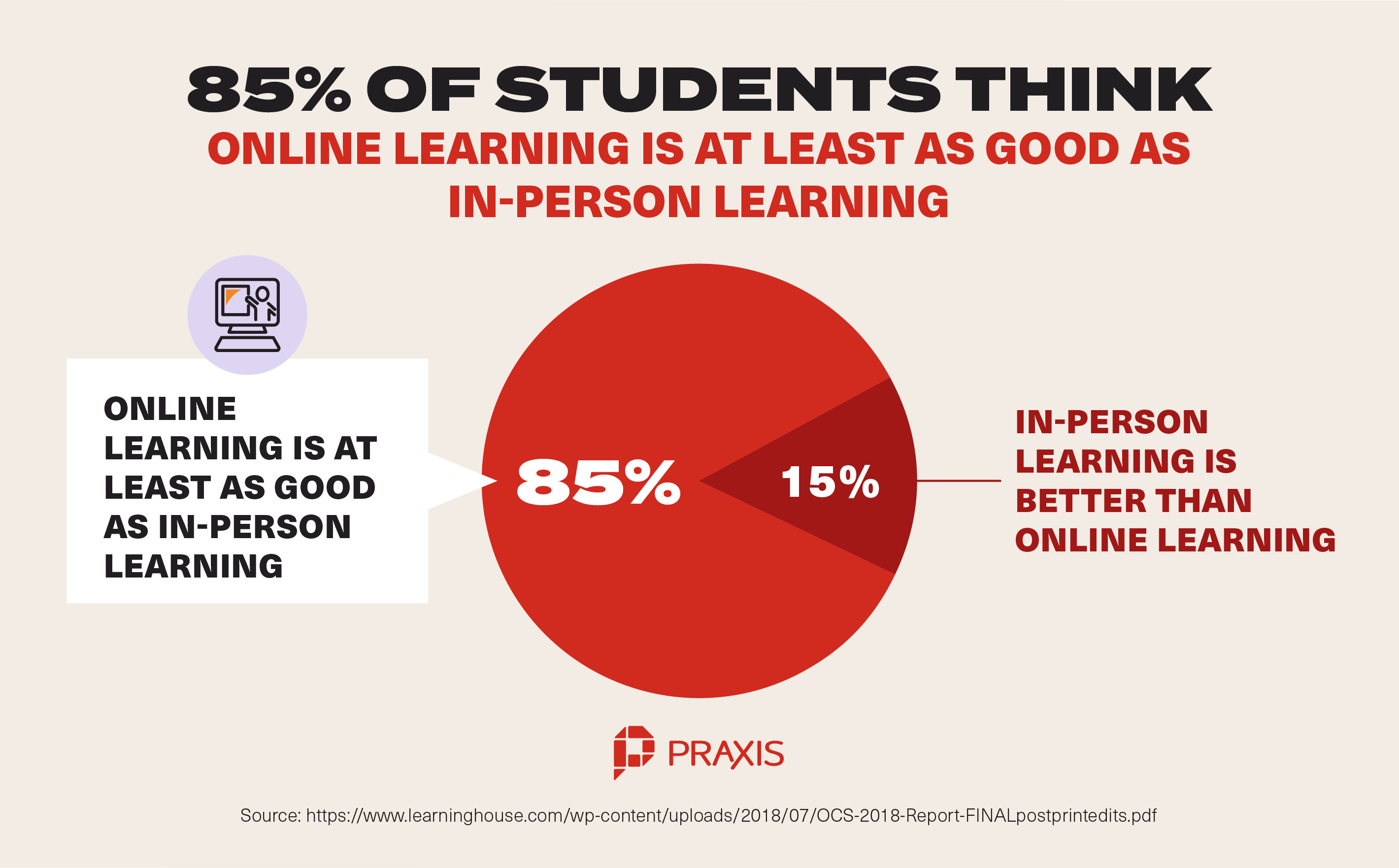 4. Offer a more diverse experience
4. Offer a more diverse experience
Most in-person colleges—especially larger ones—are diverse environments with students from all walks of life, every corner of the country, and even abroad. Online colleges take that diversity to a whole new level thanks to two aspects of the online learning experience:
- No on-campus classes mean there’s no advantage to living nearby.
- Flexible scheduling allows busy professionals of all ages to enroll—not just recent high school graduates.
The average online student is 32 years old compared to 26 years old for the average on-campus student. That six-year age gap is massive and offers a huge advantage to younger students enrolled in online colleges alongside their older classmates, many of whom already are established in the fields you’re looking to pursue.
5. Can be less expensive than in-person colleges
Cost is listed here as the last advantage of online college because it’s only an advantage sometimes.
U.S. News & World Reports compared the per-credit costs of both online and on-campus colleges at both public and private institutions.
At public colleges, there’s no cost advantage to earning your degree online. For in-state, in-district students enrolled in an online bachelor’s degree program, the average cost to earn your degree is $37,920 for the required 120 credit hours—slightly higher than the $37,320 average cost for in-state, in-district students enrolled in an on-campus program. That doesn’t mean every public college’s online degree program is just as expensive as their on-campus program, but it does show the overall trend.
At private institutions, you can enjoy serious savings with the average online degree costing $58,560 compared to $148,800 for a traditional on-campus degree. However, that’s still 54% higher than earning your degree in-person at a local public college.
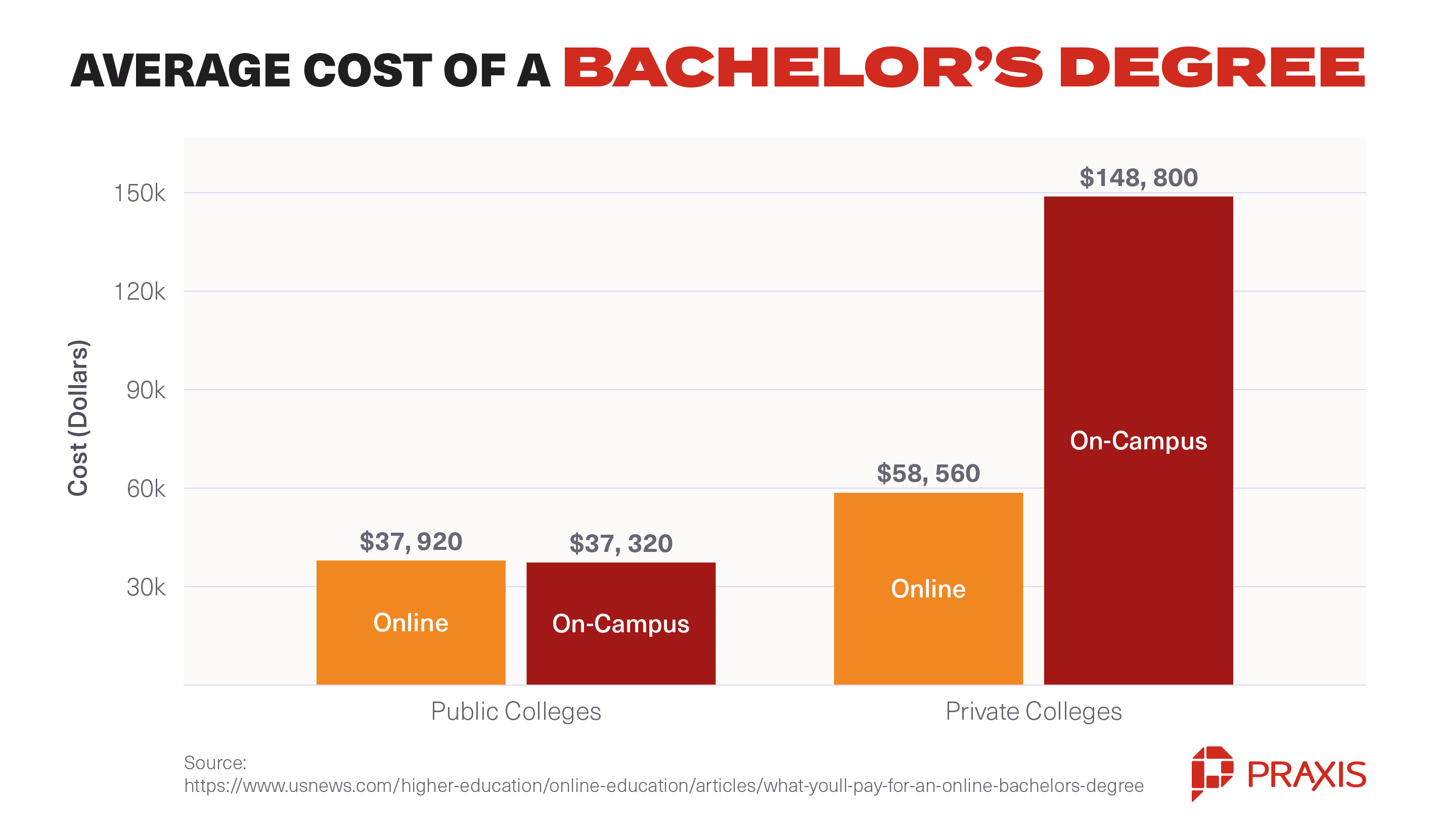 5 Disadvantages of Online College
5 Disadvantages of Online College
Though online colleges have the aforementioned advantages, they’re still a relatively new part of the academic landscape and currently are experiencing their fair share of growing pains.
Before you rush off to enroll in an online degree program, consider these five disadvantages:
- Watch out for unaccredited institutions and degree mills
- Not all employers value an online college degree
- Most online programs have much larger class sizes
- Many online classes require much more classwork
- Distance networking is much more difficult
Let’s explore each in more detail.
1. Watch out for unaccredited institutions and degree mills
Accreditation is the process of vetting a school to make sure they offer a worthwhile education. Finding an accredited institution is extremely important for several reasons:
- Makes it more likely that the degree you receive will be valued by employers
- Increases the chance that credits you earn will be eligible for transfer to other institutions
- Offers the possibility of federal financial aid
Unfortunately, there are many unaccredited—and downright shady—online “colleges” that tarnish the reputation of online colleges as a whole. The New York Times unearthed a web of unaccredited online schools operated by a Pakistani software company called Axact that rakes in tens of billions of dollars every year selling scam degrees to unsuspecting students.
Before you enroll in an online college, make sure the school you plan to attend is a legitimate, accredited institution. U.S. News & World Reports outlined a five-step process for how to do that.
2. Not all employers value an online college degree
Online degree programs from accredited institutions are gaining rapid acceptance among employers. A 2019 study found that 61% of employers view credentials earned online as being of the same or better quality than comparable in-person credentialing programs.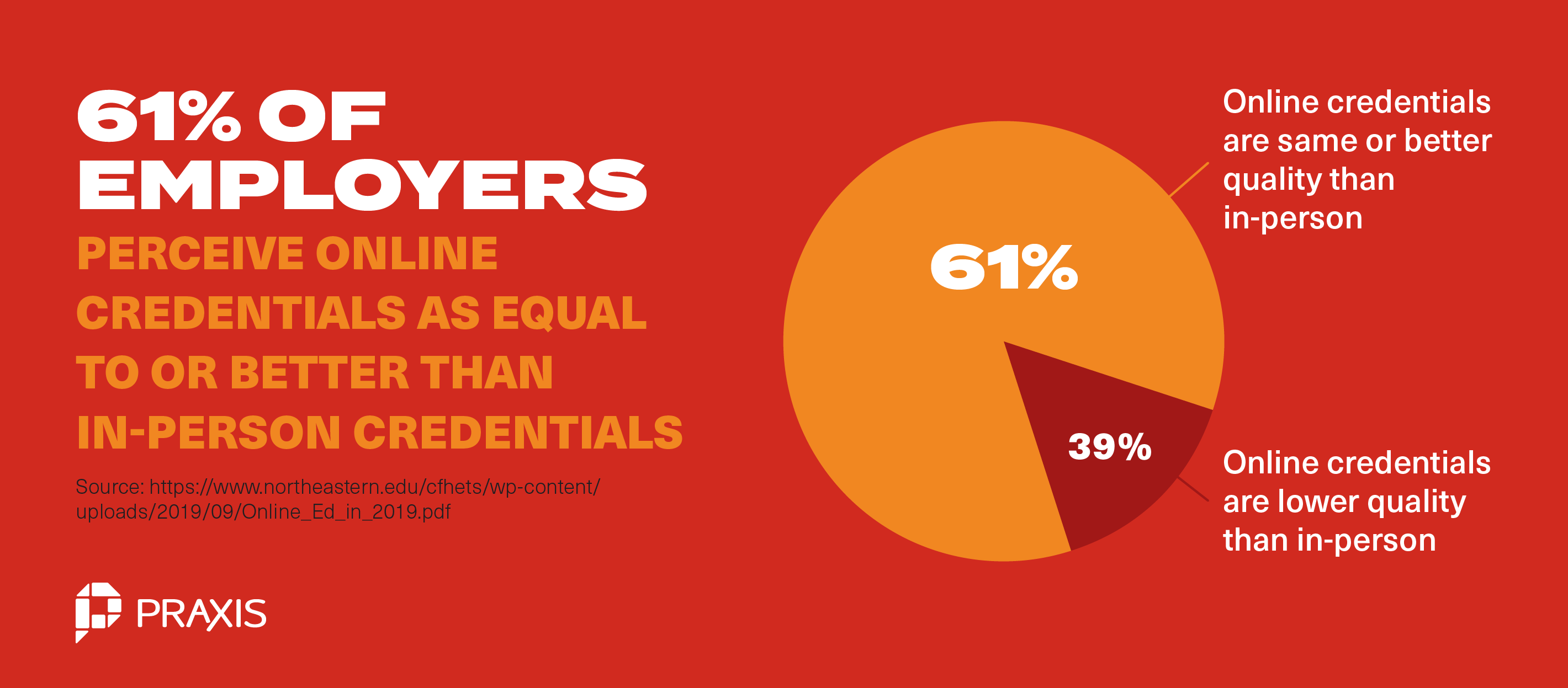 That’s a huge increase from less than a decade ago with just 34% of employers having a favorable view of online programs as recently as 2010.
That’s a huge increase from less than a decade ago with just 34% of employers having a favorable view of online programs as recently as 2010.
But the problem is the 39% of employers who don’t view an online degree as being of the same quality as a traditional in-person degree. Acceptance of online degrees is expanding rapidly, but that still leaves two-in-five employers who view your online degree as less valuable than the comparable in-person degrees earned by other applicants. That probably isn’t what you hoped for after spending over $30,000 on your online college experience.
3. Most online programs have much larger class sizes
In April 2018, Arizona State University released a study on online colleges called Making Digital Learning Work to explore how colleges can use technology to improve learning outcomes.
According to the report, online classes have “somewhat larger class sizes (on average, 45 to 55 students in online or mixed-modality courses versus about 30 in face-to-face courses).” That makes online classes 50-80% larger than the average on-campus class.
How big was your average high school classroom? According to the National Center for Education Statistics, the United States average is 24.2 students.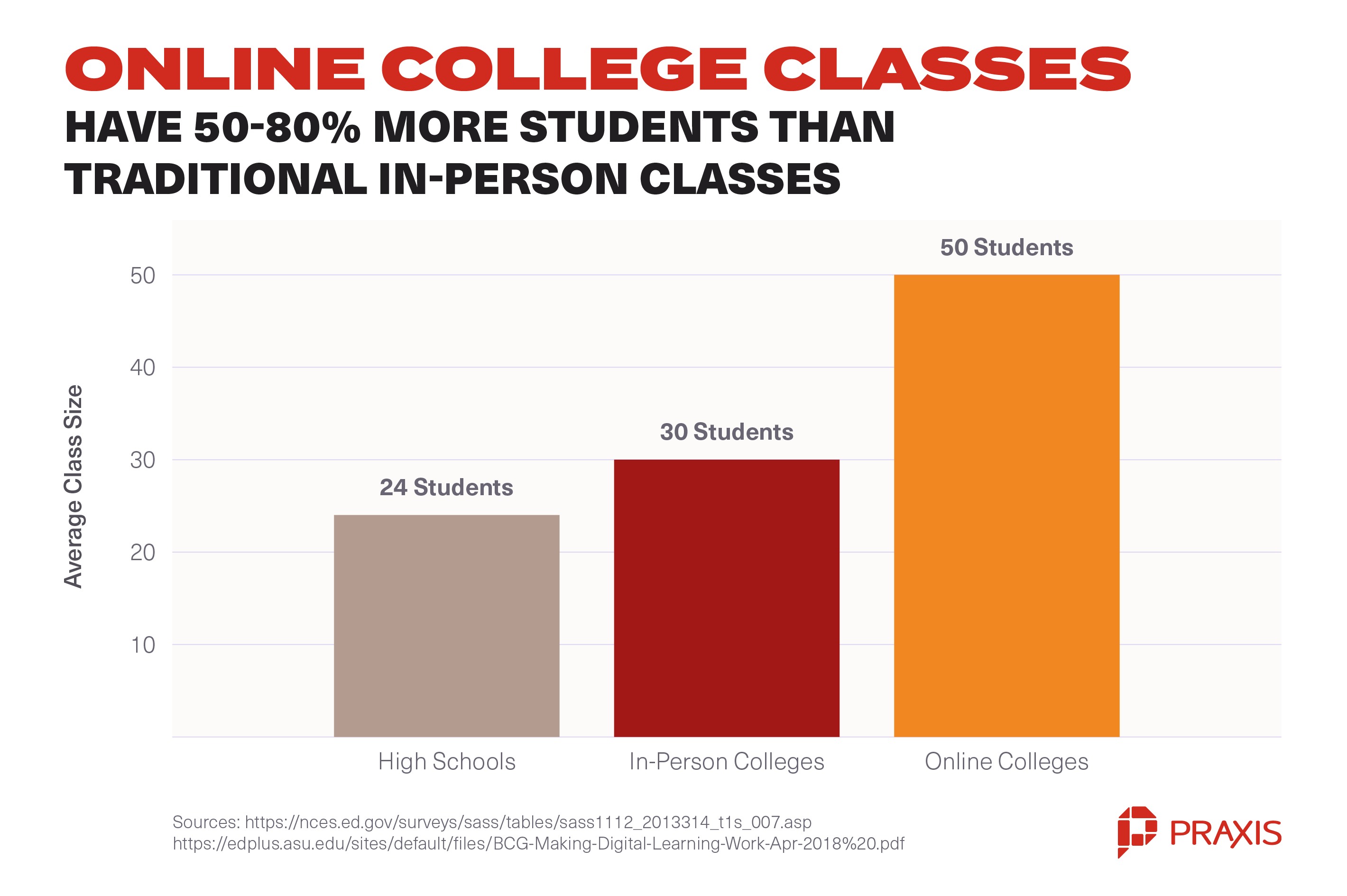 If you’re looking for an immersive learning environment with professors who are free to answer your questions in a timely manner, you may be disappointed by the online college experience.
If you’re looking for an immersive learning environment with professors who are free to answer your questions in a timely manner, you may be disappointed by the online college experience.
4. Many online classes require much more classwork
To make up for the less immersive environment, both teachers and students need to work harder outside of scheduled lectures to cover each subject properly. In many programs, that means more independent reading and more assignments to reinforce the material.
5. Distance networking is much more difficult
Learning the material and earning your degree are important parts of both the online and in-person college experience, but there’s another aspect of college that’s just as important yet often overlooked: networking.
You’ve probably heard the phrase, “It isn’t what you know, it’s who you know.” That’s networking in a nutshell. According to a 2017 study by LinkedIn, 80% of professionals believe networking is important to their career and 70% were hired at a company where they had a connection.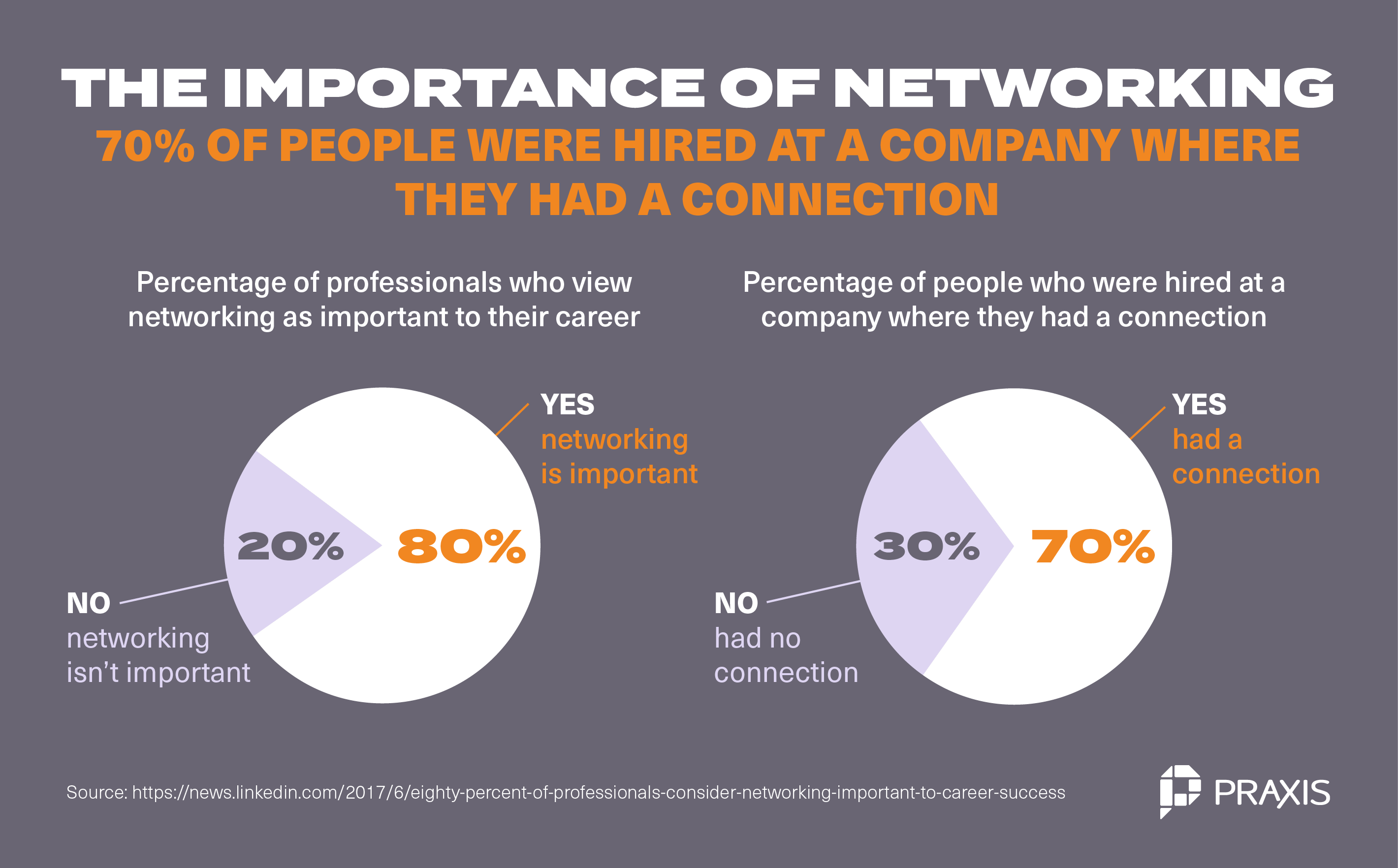 It isn’t impossible to make connections and build your professional network through online-only classes, but it’s much easier in person.
It isn’t impossible to make connections and build your professional network through online-only classes, but it’s much easier in person.
There’s a Better College Alternative Than Online Degree Programs
Online degree programs are just one of the many popular college alternatives, but are they worth the money?
That’s debatable.
- Most accredited online colleges aren’t significantly cheaper than readily-available public, in-state options.
- When you finish your online program, two-in-five employers won’t view your degree as being equal to a traditional in-person degree.
- The less-immersive environment and significantly larger class sizes dilute your learning experience and require more of a “learn it yourself” approach.
- It’s much harder to make connections and build your professional network remotely, which are proven to be important during the job search process.
If only there was a less expensive, more immersive college alternative that took just one year instead of four. Something that combined the benefits of both online convenience and in-person, on-the-job network building.
Now, there is: Praxis.
Praxis is the college alternative for entrepreneurial young professionals who want real-world skills and a self-directed education experience all in one (faster and without debt). Our program offers a powerful one-two punch:
- Immersive bootcamp to develop the necessary skills.
- On-the-job apprenticeship to gain the necessary experience (and to begin developing your professional network).
Plus, if you complete the bootcamp successfully, Praxis guarantees you land a full-time job offer at a growing company. Tuition costs $12,000, and 93% of Praxis participants graduate with a full-time job offer with an average first-year income of $50,000.
Even better? You can expect to earn more than the cost of tuition within your first six months on the job with the option to defer program payment until after you land your job. And as a guarantee, if you aren’t hired within six months of completing the bootcamp, you don’t pay a cent.
If you’d like to know more about how Praxis can help kickstart your career with less risk than both in-person and online colleges, read our Program Guide.
If you’re ready to get your career started today, apply now.
October 3, 2013
